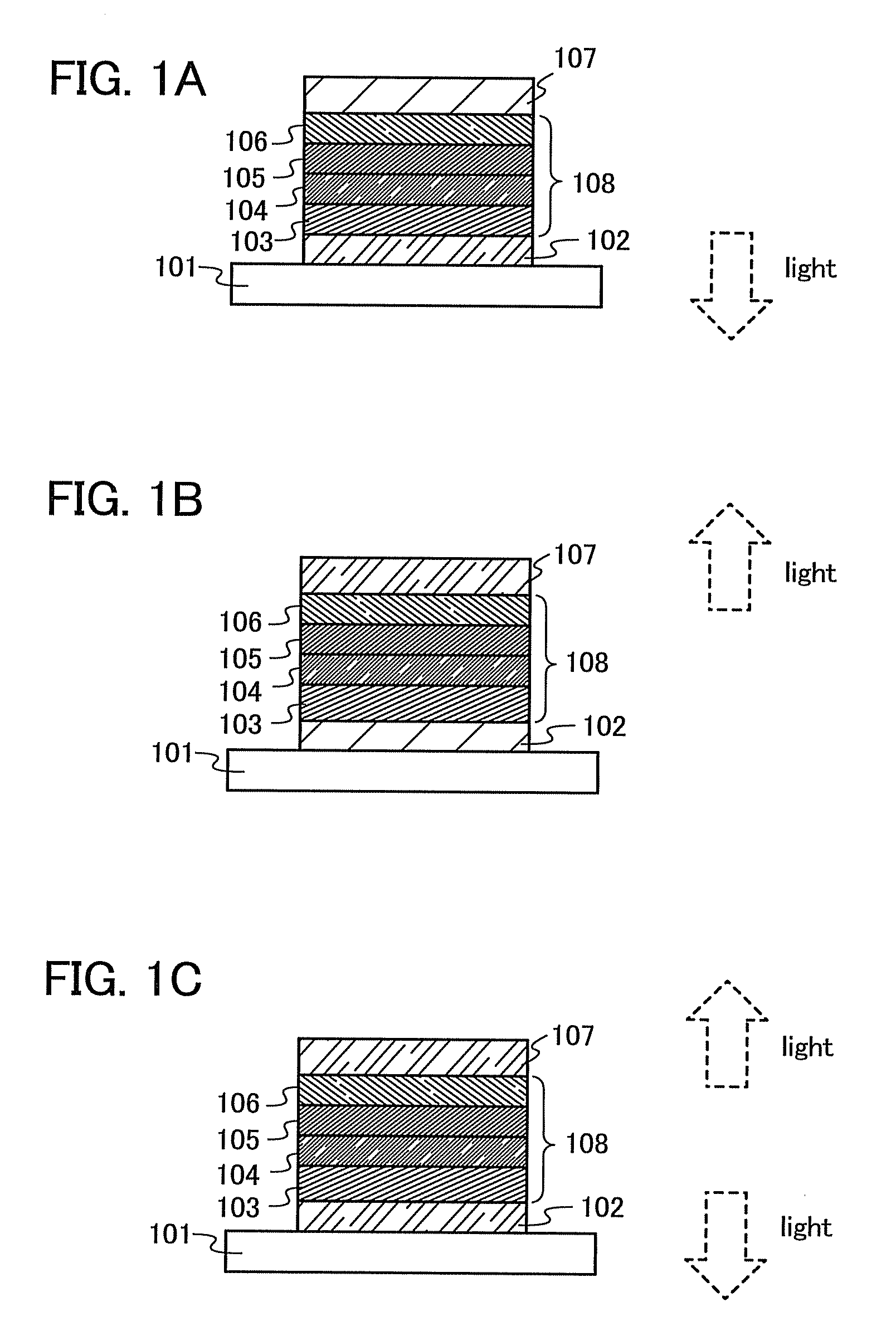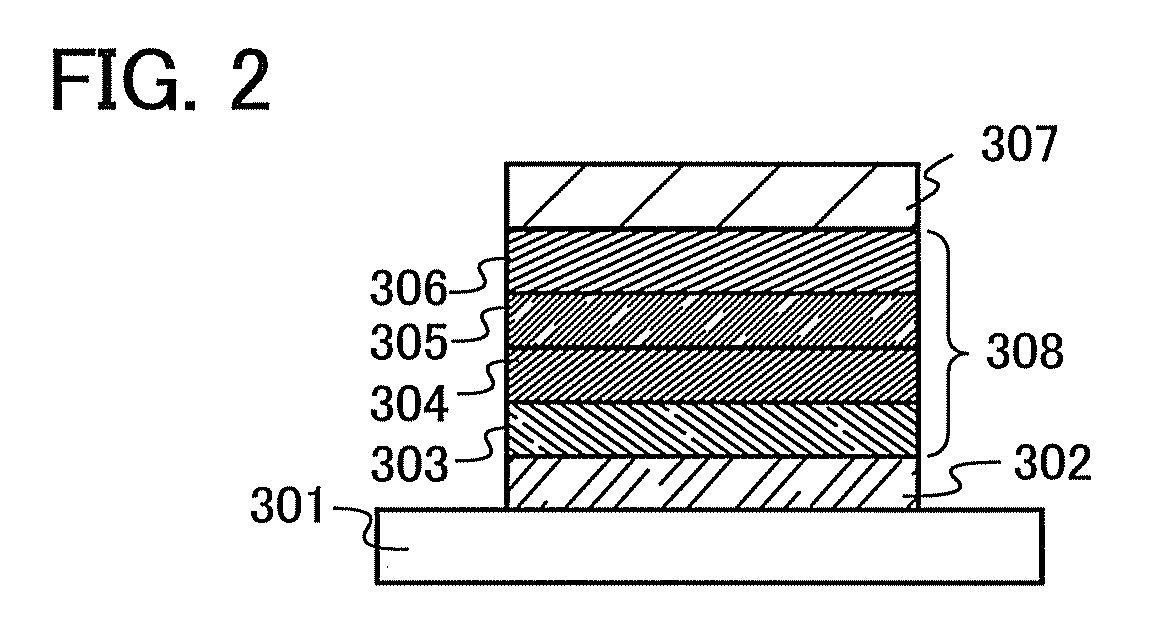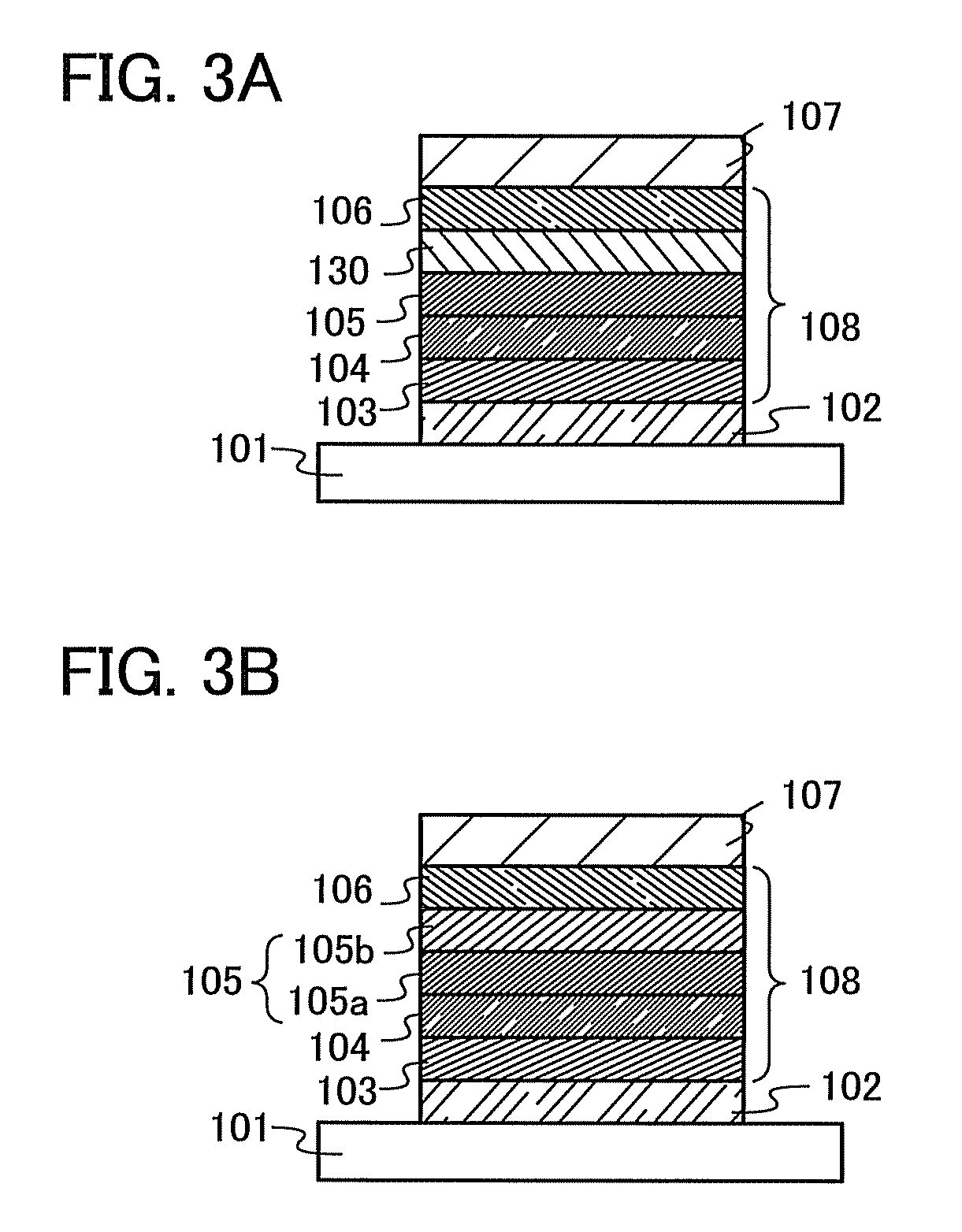Carbazole Derivative and Method for Producing the Same
a carbazole and derivative technology, applied in the field of carbazole derivative production methods, can solve problems such as affecting the yield, purity, etc. of a desired substan
- Summary
- Abstract
- Description
- Claims
- Application Information
AI Technical Summary
Benefits of technology
Problems solved by technology
Method used
Image
Examples
embodiment 1
[0088]An example of a production method of the present invention will be detailed hereinbelow. According to the production method which is an embodiment of the present invention, 9-[4-(10-phenyl-9-anthryl)phenyl]-9H-carbazole having an active site at the 3-position of the carbazole skeleton and an aromatic compound having an active site are coupled as described above.
[0089]In Embodiment 1, an example in which Suzuki-Miyaura coupling is carried out in the coupling reaction of the above Reaction Formula 2 will be described. When Suzuki-Miyaura coupling is carried out in the coupling reaction of the above Reaction Formula 2, it is preferable that X7 of Compound 2 be a halogen or triflate and that X8 of Compound 3 be boronic acid or an organoboron compound. Alternatively, it is preferable that X7 of Compound 2 be boronic acid or an organoboron compound and that X8 be a halogen or triflate. Moreover, a palladium catalyst is preferably used. In Embodiment 1, an example in which X7 of Comp...
embodiment 2
[0099]An example of a light-emitting element formed using any of the carbazole derivatives produced by a production method of the present invention will be described below with reference to FIG. 1A. In this light-emitting element, an EL layer which includes at least a layer including a light-emitting substance (also referred to as a light-emitting layer) is interposed between a pair of electrodes. The EL layer may also have a plurality of layers in addition to the layer including a light-emitting substance. The plurality of layers are a stack of layers each including a substance with a high carrier-inject property or a substance with a high carrier-transport property such that a light-emitting region is formed in a region away from the electrodes, i.e., such that carriers recombine in an area away from the electrodes.
[0100]In this specification, the layer including a substance with a high carrier-inject property or a substance with a high carrier-transport property is also referred ...
embodiment 3
[0144]In Embodiment 3, light-emitting elements having structures that are different from those of the light-emitting elements given in Embodiment 2 will be described using FIGS. 3A and 3B. In Embodiment 3, as illustrated in FIG. 3A, a layer 130 for controlling transport of electron carriers are provided between the fourth layer 106 which is an electron-transport layer and the third layer 105 which is a light-emitting layer (also referred to as a light-emitting layer 105). Thus, a layer for controlling transport of electron carriers may be provided between an electron-transport layer and a light-emitting layer.
[0145]This layer for controlling transport of electron carriers is formed by adding a small amount of substance with a high electron-trapping property to a material with a high electron-transport property as aforementioned, or alternatively, by adding a material with a low LUMO (lowest unoccupied molecular orbital) energy level and a hole-transport property to a material with a...
PUM
 Login to View More
Login to View More Abstract
Description
Claims
Application Information
 Login to View More
Login to View More - R&D
- Intellectual Property
- Life Sciences
- Materials
- Tech Scout
- Unparalleled Data Quality
- Higher Quality Content
- 60% Fewer Hallucinations
Browse by: Latest US Patents, China's latest patents, Technical Efficacy Thesaurus, Application Domain, Technology Topic, Popular Technical Reports.
© 2025 PatSnap. All rights reserved.Legal|Privacy policy|Modern Slavery Act Transparency Statement|Sitemap|About US| Contact US: help@patsnap.com



